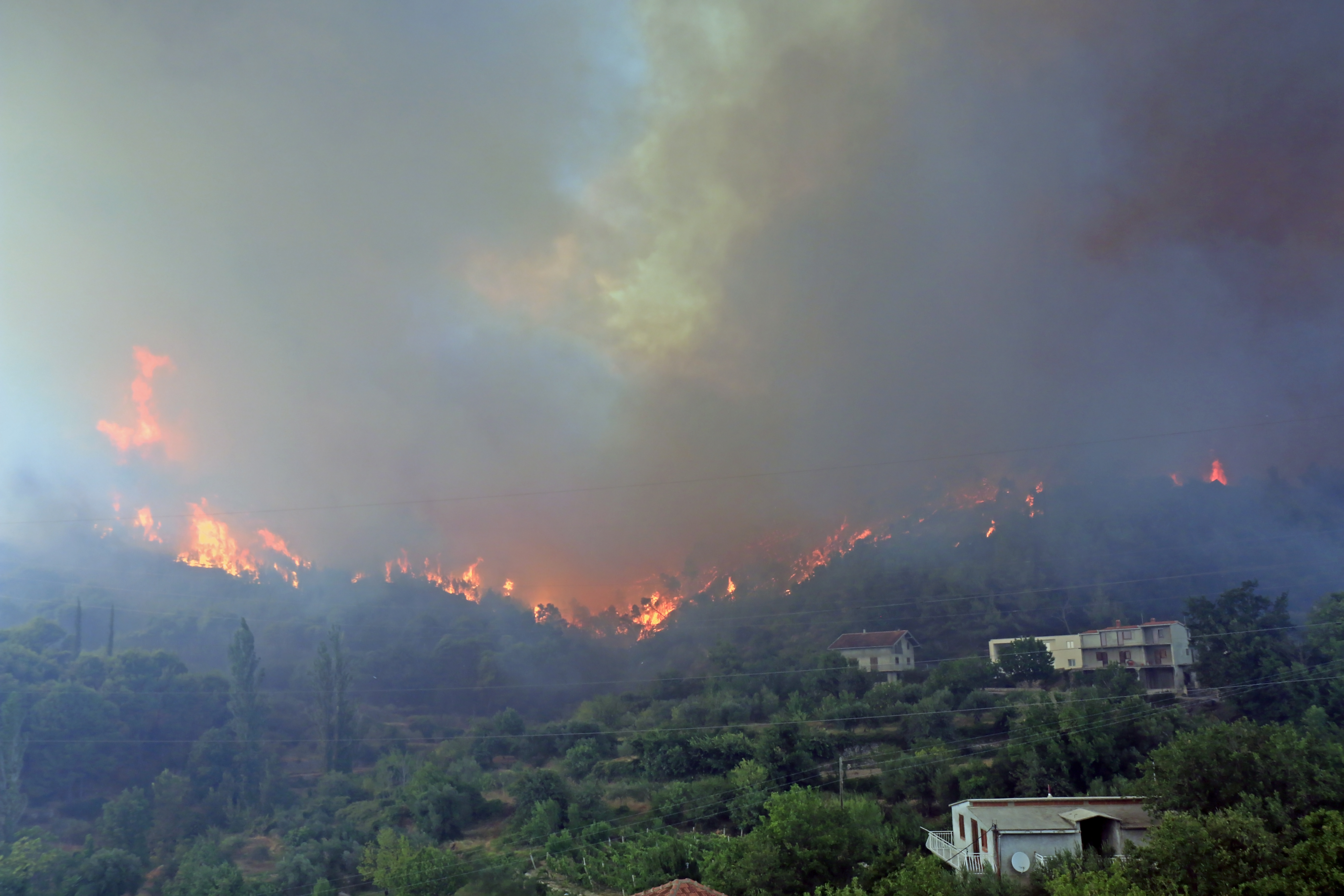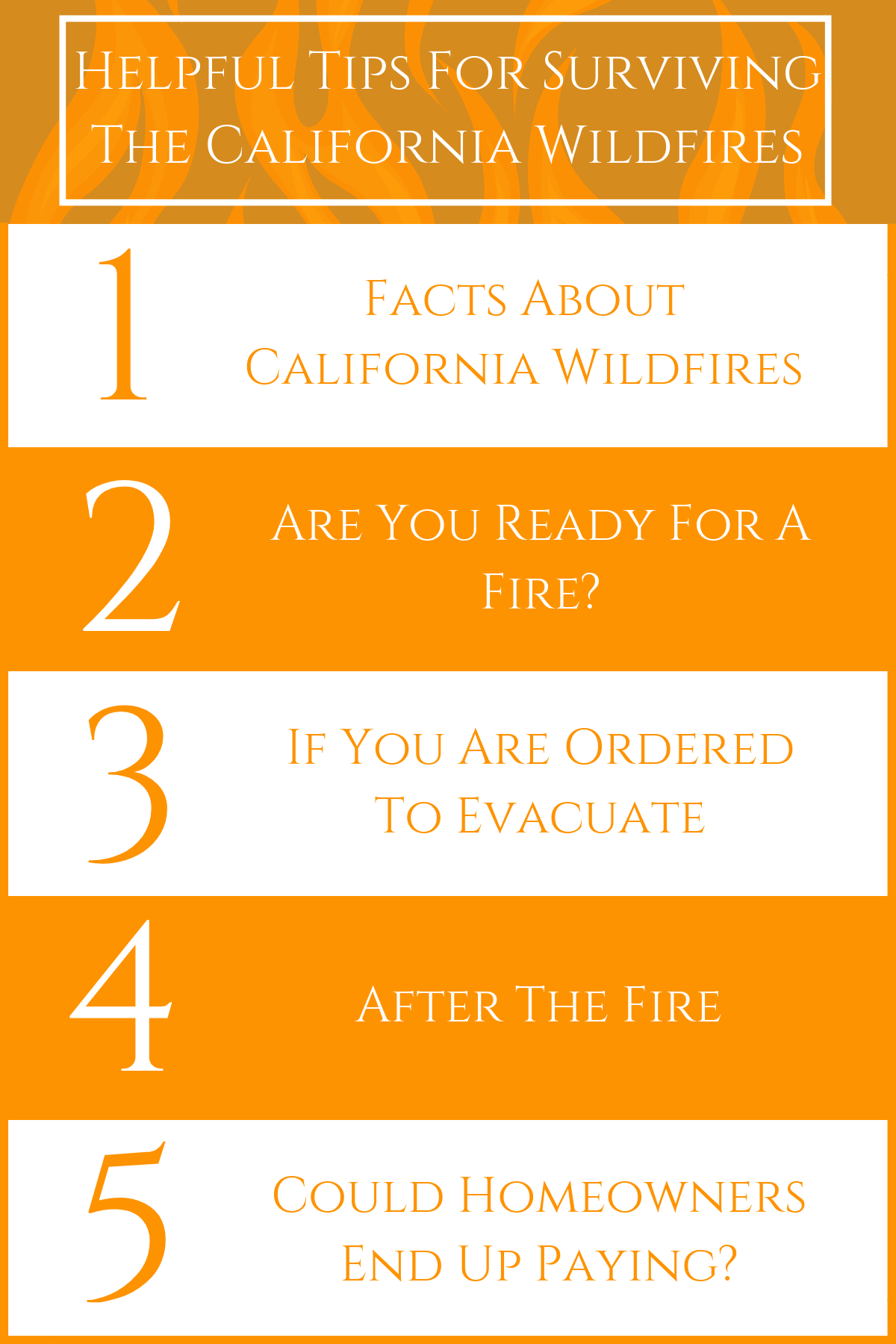25 Oct Helpful Tips for Surviving the California Wildfires

855-368-5502
Helpful Tips for Surviving the California Wildfires
By: Adam Matheny
Living in California means living with a never-ending wildfire season and the accompanying destruction. If living with wildfires isn’t bad enough, they continue getting worse every year. If you look at the numbers for 2017, they are pretty scary. California Fire responded to 250 wildfires.
At the height of the season, there were 11,000 firefighters actively engaged in fighting 21 massive wildfires. These fires caused over 100,000 people to leave their homes. At the end, over 245,000 acres were destroyed, and Cal Fire stated that the Tubbs Fire was the largest fire in California history. A record that lasted less than a year with over 600,000 acres destroyed by August of 2018. The numbers keep going up, and no one sees an end to wildfires at any time in the near future.
Facts About California Wildfires
As you have no doubt noticed by the many news videos shown all over the TV and internet, wildfires move fast and can quickly destroy everything in their paths. If you have a home in California, odds are you are at risk of being caught up in a wildfire. There are over 2 million homes at risk in the state of California. Of the last ten significant wildfires in the U.S., eight of them were in California. Wildfires are considered the most dangerous type of fire.
Are You Ready for a Fire?
Rather than learn first-hand how to react in the event of wildfire when you may only have a few minutes to evacuate your home with everyone and whatever you can grab, here are a few tips that can make the difference.
1.Have your evacuation plan ready to go. This means making sure everyone in your family knows where the rally point is and how to get there, in case you get separated.
2.Have a list of everything you need to take with you. This should include an emergency supply kit, clothing, bedding, pillows, medications, personal hygiene items, and pet supplies. All essential documents, marriage certificate, driver’s license, birth certificates, social security cards, passports, financial documents, and include an inventory of your home. Be sure your pet has their collar, take a photo of them and their medical records.

If You Are Ordered to Evacuate
If the firefighters or law enforcement orders you to evacuate, you need to do so quickly. Doing so not only ensures the safety of you and your family, but it also helps to keep the road clear. In turn, this makes it easier for the firefighters to do their jobs. Before you leave (if you have time), you should do the following:
- Turn on the lights in your house – it makes it easier to find.
- Turn off the gas and all appliances.
- Put on sturdy shoes, long pants, and a long sleeve jacket.
- Lock the doors and close all windows.
- Grab your bug-out bag and everything you want to take with you.
- If possible, take your pets with you.
- Follow your pre-described emergency evacuation plan.
After the Fire
Depending on the nature of the fire, your home may or may not have been destroyed. Here’s what to do once the fire is over:
- Contact disaster relief if you need somewhere to stay, food, water, medicines.
- If your home is still standing, call the fire department and ask if it’s safe for you to return and if it is safe to turn on the utilities.
- Be on the lookout for downed power lines and other hazards.
- Contact your mortgage company or landlord.
- Hang onto your receipts to present to your insurance company.
The Wildfires Have Cost Insurance Companies Billions – Could Homeowners End Up Paying?
With the costs from these wildfires in the billions of dollars, insurance companies in Northern California are having to bear the brunt of cost under both homeowners and commercial insurance policies. The question many in the rest of the state are starting to wonder if they will soon be seeing the effect of these payouts in rising insurance premiums.
Although insurers have stated that premiums won’t be going up, there is a risk that instead of increasing rates, that possibly insurers may start pulling out or refusing to insure those homes in “high-risk” areas. This could leave homeowners with no option but to turn to the secondary market, which is far more expensive.
Partner With The Best
Flow Insurance Services has many markets for high brush fire homes and can insure 96% of the market. Place your trust in us and let us help you to write more business. When it comes to growing your business, things can be challenging. Flow Insurance Services is here to help!

